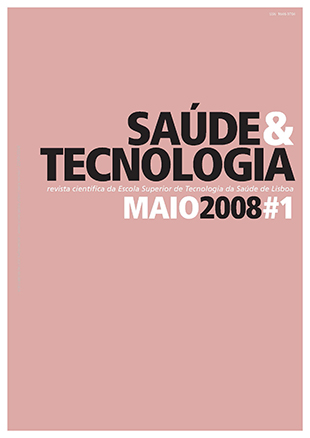Contribution to the adaptation and validation of the Portuguese version of Motor Assessment Scale
DOI:
https://doi.org/10.25758/set.24Keywords:
Hemiplegia, Motor Assessment Scale, Adaptation, Validation, Internal consistencyAbstract
Introduction: The Motor Assessment Scale (MAS) has been shown to be a valid and reliable instrument for measuring the clinical progress of stroke patients. Objectives: Translate and adapt the MAS to the Portuguese reality and contribute to the validation of the Portuguese version, by assessing its internal consistency. Methods: The Portuguese version of the MAS was obtained through a process of translation, expert revision, back translation, and comparison with the original scale. A transversal-correlated study was performed in order to evaluate the internal consistency. The sample included 30 subjects, 16 males and 14 females, ages between 42 and 85 years old (average of 64±11.85 years old), with hemiparesis or hemiplegia as a result of a stroke, and attend physiotherapy in one of the 6 conveniently selected hospitals. The average time since diagnosis was 306±1322.82 days and physiotherapy time was 47±57.57 days. Results: It obtained an average of 24±14.51 points in the total score and a Cronbach alpha of 0.939, without the exclusion of any item; the inter-item correlations varied between 0.395 and 0.916. Conclusions: Despite the small sample and the heterogeneity in its characteristics and scores, the Portuguese Version of the MAS, showed a high internal consistency. The main items are highly correlated with each other, which supports the adequacy of each item and the structured and logical conception of this scale.
Downloads
References
Nobre M. Acidente Vascular Cerebral. [consultado 2007 Jan 8; citado 2007 Jul 5]. Disponível através de: http://clientes.netvisao.pt/terapia/AVC.htm
Carr JH, Shepherd RB. Stroke Rehabilitation – Guidelines for Exercise and Training to Optimize Motor Skill. United States of America: Butter Worth-Heinemann; 2006.
Carr JH, Shepherd RB, Nordholm L, Lynn D. Investigation of a New Motor Assessment Scale for Stroke Patients. Physical Therapy, 1985 Fev;65(2):175–80.
Aamodt G, Kjendahl A, Jahnsen R. Dimensionality and scalability of the Motor Assessment Scale (MAS). Disability and Rehabilitation, 2006 Ago; 28(16):1007–13.
Finch E, Brooks D, Stratford PW, Mayo NE. Physical Rehabilitation Outcome Measures – A Guide to Enhanced Clinical Decision Making. Ontario: Canadian Physiotherapy Association; 2002.
Pereira C. A Recuperação do Utente após AVC – Que Prognóstico? Escola Superior de Saúde FisiOnline, 2006 Set;2(4):38–49.
Ribeiro JLP. Investigação e avaliação em psicologia e saúde. Lisboa: Climepsi Editores; 1999.
Cohen H. Neuroscience for Rehabilitation. 2nd ed. Houston: Lippincott Williams & Wilkins; 1999.
Sabari J, Linn LA, Velozo CA, Lehman L, Kieran O. Assessing Arm and Hand Function After Stroke: A Validity Test of the Hierarchical Scoring System Used in the Motor Assessment Scale for Stroke. Arch Phys Med Rehabil. 2005;86:1609–15.
Johnson, L, Selfe, J. Measurement of mobility following stroke: a comparison of the Modified Rivermead Mobility Index and the Motor Assessment Scale. Physiotherapy. 2004;90:132–8.
Fortin MF. O Processo de Investigação. Loures: Lusociência; 1999.
Downloads
Published
Issue
Section
License
Copyright (c) 2023 Saúde e Tecnologia

This work is licensed under a Creative Commons Attribution-NonCommercial-NoDerivatives 4.0 International License.
The journal Saúde & Tecnologia offers immediate free access to its content, following the principle that making scientific knowledge available to the public free of charge provides greater worldwide democratization of knowledge.
The journal Saúde & Tecnologia does not charge authors any submission or article processing charges (APC).
All content is licensed under a Creative Commons CC-BY-NC-ND license. Authors have the right to: reproduce their work in physical or digital form for personal, professional, or teaching use, but not for commercial use (including the sale of the right to access the article); deposit on their website, that of their institution or in a repository an exact copy in electronic format of the article published by Saúde & Tecnologia, provided that reference is made to its publication in Saúde & Tecnologia and its content (including symbols identifying the journal) is not altered; publish in a book of which they are authors or editors the total or partial content of the manuscript, provided that reference is made to its publication in Saúde & Tecnologia.







